April is Volunteer Appreciation Month—a special time to recognize the generous individuals who give their time, talents, and hearts to support the missions of social sector organizations. Volunteers are often the quiet force behind transformational work, showing up not for accolades or compensation, but because they believe in making a difference.
At Social Current, we see this spirit of service come to life every day, especially through our COA Accreditation Reviewer System. This network of volunteer peer reviewers—made up of passionate, experienced professionals from across the human and social services sector—plays a critical role in advancing high standards of quality and continuous improvement. Their dedication ensures that organizations across the country uphold practices that are responsive, ethical, and effective. Learn more about how reviewers support the accreditation process.
Whether reviewing an organization’s operations, mentoring a new volunteer, or lending a helping hand in the community, volunteers inspire us every day. As we celebrate their contributions, here are three simple yet powerful ways to build lasting connections with your volunteers and show them the appreciation they deserve:
1. Build Meaningful Relationships
Don’t just reach out when you need a hand—take time to genuinely connect. Learn about your volunteers’ stories, their motivations, and what brings them joy. When volunteers feel seen and valued, they become even more invested in your mission and are often willing to go the extra mile. A strong relationship fosters trust and mutual commitment.
2. Get to Know the Whole Person
Your volunteers are multifaceted individuals who likely lead fascinating lives outside of your organization. Take interest in their families, careers, and passions. You might discover they support causes across the globe or have unique talents that can enrich your organization. Celebrating who they are beyond their volunteer role can strengthen your bond and deepen their engagement.
3. Be Creative and Consistent in Showing Appreciation
Volunteers don’t give their time expecting anything in return—but that makes it all the more important to recognize their efforts. Even when resources are limited, find heartfelt and creative ways to say thank you. A handwritten note, a public shoutout, or a surprise treat can go a long way. Let them know how much their contributions mean—not just during Volunteer Appreciation Month, but all year round.
Whether they’re advancing organizational excellence through the COA accreditation process or lending their talents in other ways, volunteers are the soul of the social sector. This month, and every month, let’s continue to honor their commitment with gratitude, connection, and celebration.
From all of us at Social Current—thank you, volunteer peer reviewers. You make our collective impact possible.
Through COA Accreditation, a service of Social Current, we seek to empower organizations to implement best practice standards to improve service delivery and achieve better outcomes for individuals and communities. COA Accreditation provides a framework to help organizations manage resources, incorporate best practices, and strive for continuous improvement.
We believe there is rich expertise in our field, so we ground the COA Accreditation process in our human and social services community. Our volunteer peer reviewers conduct our site visits and finalize accreditation decisions.
We are proud to spotlight the latest Volunteer of the Quarter: Milton Fonseca.
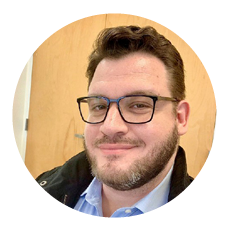
About Milton Fonseca
Milton Fonseca’s family emigrated from Cuba and settled in South Florida in 1991. Raised by a hardworking single mother, he learned the values of perseverance, integrity, and dedication to service. His professional journey began in 2004 when he joined the Advocate Program Inc. (AP) as a front desk clerk in the DUI Department. AP is a multifaceted organization serving the South Florida tri-county area of Miami-Dade, Broward, and Monroe Counties, and as of 2024, has expanded its services to Volusia County in Northeast Florida.
Throughout his tenure at AP, Fonseca has advanced within the organization from a program specialist to a program manager, and in 2018, assuming the role of director of performance and quality improvement. In 2024, he was appointed director of operations for Volusia County. His educational journey has been equally fulfilling—he earned his associate’s in business administration from Miami-Dade College in the summer of 2023 and completed a bachelor’s in leadership and innovation with a concentration in human resources in December 2024. He is also actively affiliated with Mothers Against Drunk Driving and the Florida Association of Community Corrections, both of which align with his commitment to public safety and rehabilitation efforts.
Fonseca was first introduced to COA Accreditation in 2015 when AP made the significant decision to pursue accreditation, reinforcing its dedication to quality service and continuous improvement. In 2019, he became the organization’s primary point of contact for reaccreditation cycles, leading successful reaccreditation efforts in 2019 and 2023. This experience has deepened his appreciation for COA Accreditation as a means of ensuring the highest standards in service delivery and organizational excellence.
Q&A
What three traits define you?
The three traits that define me are perseverance, resilience, and empathy. Throughout my professional journey and personal growth, I have had the privilege of working alongside passionate individuals dedicated to making a meaningful impact in the communities they serve. I firmly believe that success is built on a foundation of hard work, determination, and an unwavering commitment to progress, even in the face of adversity.
Resilience has allowed me to navigate challenges with strength and adaptability, turning obstacles into opportunities for growth. However, true leadership and service require empathy. Understanding and valuing the experiences of others fosters meaningful connections, ethical decision-making, and a genuine commitment to improving lives.
What are your strongest beliefs about the value of COA Accreditation?
I firmly believe that COA Accreditation is a powerful testament to an organization’s commitment to excellence. It signifies that an organization has met the highest standards of service, ensuring that every aspect of its operations–from service delivery to internal processes–aligns with best practices and industry benchmarks.
COA Accreditation is more than just a credential; it represents ongoing dedication to quality, accountability, and continuous improvement. It strengthens an organization’s ability to fulfill its mission, enhances service outcomes, and builds trust among clients, stakeholders, and the community. It is a symbol of integrity and a reflection of an unwavering pursuit of excellence in everything an organization does.
What advice would you give someone interested in being a COA Accreditation volunteer?
Go for it! Becoming a COA Accreditation volunteer is an incredibly rewarding experience that will challenge you, help you grow, and shape your professional development in ways you never imagined. As a COA Accreditation Peer Reviewer, you’ll gain invaluable insight into best practices across the nation, learning from diverse organizations that are making a real difference in their communities. Not only will you bring back knowledge and fresh perspectives to your own organization, but you will also contribute to strengthening the field as a whole.
Along the way, you’ll meet dedicated professionals who share your passion for service—and maybe even a celebrity or two! During one site visit, I had the unexpected honor of meeting Academy-Award-winning actress Jamie Lee Curtis—but I digress. More importantly, serving as a Peer Reviewer has been one of the greatest joys of my career. I look forward to continuing this journey for many years as a Lead Peer Reviewer and being part of Social Current’s mission to promote excellence in human and social services through COA Accreditation.
What excites, surprises, and/or challenges you the most about the work you do as a COA Accreditation volunteer?
When I began my journey as a COA Accreditation Peer Reviewer, I was eager to witness the incredible work being done by organizations across the country, hoping to bring back valuable insights and best practices to enhance my own organization. What I didn’t expect was the profound impact that my fellow Peer Reviewers —particularly the seasoned Lead Reviewers—would have on me, both professionally and personally.
I have been truly inspired by individuals who have dedicated years, and in some cases, decades, to this work. Their unwavering commitment, professionalism, and passion for service excellence have shaped my own approach as a Peer Reviewer and Lead. I have had the privilege of learning from some of the best, including Helene Cohen, the great Stan Capela, Kathy Cook, Ray Barber, and Jerry Moran. Their mentorship and leadership have not only refined my skills but have deepened my appreciation for the power of COA Accreditation in strengthening organizations and, ultimately, the communities we serve.
What led you to become a COA Accreditation volunteer?
Being deeply involved in my organization’s initial accreditation process and leading subsequent reaccreditation cycles sparked my passion for the COA accreditation process. I was eager to gain a broader perspective—one that allowed me to step into the role of a peer reviewer and witness firsthand how other organizations across the nation operate and serve their communities.
What truly drew me to become a COA Accreditation peer reviewer was the opportunity to witness the incredible work being done by organizations committed to excellence and positive change. Engaging with diverse organizations, learning from their best practices, and contributing to their journey toward continuous improvement is a privilege I do not take for granted. It is both inspiring and rewarding to be part of a process that upholds the highest standards of service and strengthens the collective impact we strive to make in the lives of those we serve.
Learn more about how to become a peer review volunteer and apply online.
Through COA Accreditation, a service of Social Current, we seek to empower organizations to implement best practice standards to improve service delivery and achieve better outcomes for individuals and communities. COA Accreditation provides a framework to help organizations manage resources, incorporate best practices, and strive for continuous improvement.
We believe there is rich expertise in our field, so we ground the COA Accreditation process in our human and social services community. Our volunteer peer reviewers conduct our site visits and finalize accreditation decisions.
We are proud to spotlight the latest Volunteer of the Quarter: Thayer L. Johnson, MSW, LSW.
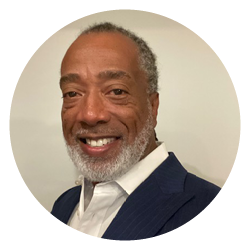
About Thayer L. Johnson
Thayer received his undergraduate degree in education from Norfolk State University in 1987. In 1995, he graduated from the University of Illinois Chicago with his master’s in social work. While he earned this degree, he began his long social work career at the Illinois Department of Children and Family Services. During his tenure, he served in several capacities, including several years as the regional administer of child protection. During the agency’s public accreditation, he discovered an interest in the process. As time went on, he became a cheerleader for accreditation so that his agency could achieve greatness through best practice standards. In 2006, he became trained as a COA Accreditation peer reviewer. He has since completed many reviews and began his service as a Team Leader this year.
Q&A
What three traits define you?
Diligence in task completion; commitment toward goals; and honor for all leaders in child welfare.
What are your strongest beliefs about the value of COA Accreditation?
It is always great to hear how someone outside your agency recognizes and celebrates your hard work. It is even greater, however, when you can see areas of improvement verbalized by a peer from the field, and then to make changes which will further benefit clients.
What advice would you give someone interested in being a COA Accreditation volunteer?
I would recommend that anyone in this field become a COA Accreditation volunteer. It is a great experience for me, and now that I am retired, I have more time to volunteer. I’m having a blast!
What excites, surprises, and/or challenges you the most about the work you do as a COA Accreditation volunteer?
I am excited when I see a strong team leader lead a group of peers from other states, sometimes with varying ideas of how to process evidence presented by an organization. Challenging conversations lead to an agreement of what success looks like or an identified challenge to be presented back to an organization. I am also very happy to see what an agency has put in place that may mirror strategies my own agency had put in place.
What led you to become a COA Accreditation volunteer?
The attention to detail and quality of information gathered in evidence during my agency’s COA accreditation and reaccreditation processes. I wanted to do what I saw the volunteers do in my agency for other organizations.
Learn more about how to become a peer review volunteer and apply online.
Help Shape the Next Edition of COA Accreditation Standards
COA Accreditation, a service of Social Current, is proposing enhancements to six sections of its standards. These proposed updates, which reflect an in-depth review and synthesis of prominent published research and professional literature, as well as collaboration with a diverse group of subject matter experts, are now available for review and comment.
Download the documents of proposed changes:
- Workforce Development and Support Services (WDS)
- Case Management (CM)
- Vocational Rehabilitation Services (VOC)
- Adult Day Services (AD)
- Early Childhood Education (ECE)
- For-Profit Administration and Financial Management (AFM)
Click on the links above to save the Word documents to your computer’s Downloads folder. Review the documents and submit your feedback through the process outlined at the top of each document. The deadline to make comments is Dec. 18.
The field comment period is a critical step in our process because it ensures our standards are field informed by including input from provider organizations in the development process. This critical pairing of research and practice ensures that the COA Accreditation standards remain rigorous, practical, and reflective of current trends and evolving practices and continue to promote improved outcomes for individuals, families, and communities. The final updates will be released in spring 2025.
COA Accreditation, a service of Social Current, has revised its standards for Opioid Treatment Programs (OTP) in the U.S. in response to SAMHSA releasing revised rules for OTPs, which went into effect on Oct. 2.
Social Current staff worked closely with SAMHSA and COA Accredited OTPs to ensure the updated standards reflected these rule changes and current practice in the treatment of opioid use disorder with medications. The new rules and revised standards expand access to care, including expanding access to take-home medications, split dosing, and telehealth. They also improve a person’s experiences as they seek treatment for substance use disorder by removing stigmatizing language and promoting the chronic disease model of management, a more person-centered approach to treatment, and harm-reduction.
The 2024 edition of the OTP standards is now available on the Social Current website.
Download a copy of the revised standards.
Questions?
If you are pursuing accreditation or re-accreditation, contact your accreditation coordinator.
If you are seeking accreditation for the first time, join an upcoming informational webinar or contact Joe Perrow, network growth manager at Social Current.
For additional information about COA Accreditation standards, contact Melissa Dury, director of standards at Social Current.
Through COA Accreditation, a service of Social Current, we seek to empower organizations to implement best practice standards to improve service delivery and achieve better outcomes for individuals and communities. COA Accreditation provides a framework to help organizations manage resources, incorporate best practices, and strive for continuous improvement.
We believe there is rich expertise in our field, so we ground the COA Accreditation process in our human and social services community. Our volunteer peer reviewers conduct our site visits and finalize accreditation decisions.
We are proud to spotlight the latest Volunteer of the Quarter: Sharon Gruttadauro, MSW.
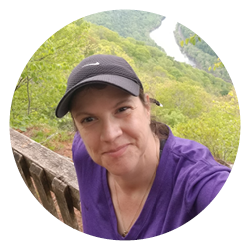
About Sharon Gruttadauro
After high school, Sharon Gruttadauro followed her brother to Valparaiso University in Indiana, where she intended to study Spanish and education. That quickly changed, however, and Sharon ultimately graduated with a dual degree in social work and early childhood education. Deciding to remain in Valparaiso, Indiana, after graduation, she went to work for Youth Service Bureau of Porter County. While there, she provided group and individual support to youth in both the community and residential programs.
When Sharon and her husband moved a few towns over to LaPorte, Indiana, she began work for the Youth Service Bureau of LaPorte County. She provided group and individual support, both in the community and school settings. This was also where she began to teach parenting classes to caregivers moving through the family court system.
Sharon went on to further her education at Andrews University in Berrien Springs, Michigan. She focused her master’s studies on the administrative track rather than clinical. In doing so, she was able to begin her journey into accreditation processes; her G.A. assignment was to assist the chair of the department in their reaccreditation process.
In 1998, Sharon moved back to Rochester, New York, where she was born and raised. She began to work for Hillside. Over the past 26 years, she has served youth, adults, and families at Hillside as a clinician, care manger, quality improvement specialist, and now as clinical manager overseeing the organization’s accreditation process.
When Sharon first joined Hillside, it was going through the accreditation process with another accrediting body. It was not long, however, before the organization made the switch to COA Accreditation, now a service of Social Current. As she moved into the quality department, she became more involved in the COA Accreditation process. This is where she first learned about interpreting standards, preparing for the site visit, and the overall importance of accreditation.
Q&A
What three traits define you?
I have a passion for learning.
I am a team player, and I really care about the people in my life.
I am detail oriented.
What are your strongest beliefs about the value of COA Accreditation?
While my organization does have some programs we are required to accredit, I believe that by accrediting all of our programs we are striving for best practice. When we strive to be the best and reach the high level of COA Accreditation we position ourselves to a better provider of services to youth, adults, and families.
What advice would you give someone interested in being a COA Accreditation volunteer?
Just do it. It is amazingly valuable to you, your organization, and to the organizations you will visit.
What excites, surprises, and/or challenges you the most about the work you do as a COA Accreditation volunteer?
I love to see how different organizations interpret the standards to get the work done.
What led you to become a COA Accreditation volunteer?
Back in 2017, when I originally applied to be a peer reviewer, I was eager to learn more about the COA Accreditation review process. I wanted to truly understand the standards my organization fell under. I was also very impressed with a peer during one of our site visits. The way she spoke of the value of being a peer reviewer and the connections she made across the country really intrigued me in regard to benchmarking with top-notch organizations in the now Social Current network.
Learn more about how to become a peer review volunteer and apply online.
Through COA Accreditation, a service of Social Current, we seek to empower organizations to implement best practice standards to improve service delivery and achieve better outcomes for individuals and communities. COA Accreditation provides a framework to help organizations manage resources, incorporate best practices, and strive for continuous improvement.
We believe there is rich expertise in our field, so we ground the COA Accreditation process in our human and social services community. Our volunteer peer reviewers conduct our site visits and finalize accreditation decisions.
We are proud to spotlight the latest Volunteer of the Quarter: Francisco Javier Brizuela.
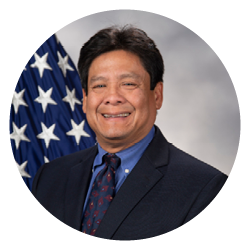
About Francisco Javier Brizuela
Francisco J. Brizuela received his first COA Accreditation training in 1998 during his tenure with Catholic Charities of Miami, where he was the director of the child welfare division. He also served as an assistant professor at Graceland University and Miami Dade College, where he eventually advanced into the role of director of assessment and compliance.
As a volunteer, Francisco was given the opportunity to train in the COA Accreditation process for U.S. military children and family services, including school age programs and family services. Serving as a COA Accreditation peer reviewer for military programs opened the doors of the Department of Defense for Francisco when he received an offer to work for the U.S. Department of the Army in 2011. Currently, Francisco serves as the chief of child and youth programs at Dover Air Force Base.
Q&A
What three traits define you?
Integrity, honesty, and gratefulness.
What are your strongest beliefs about the value of COA Accreditation?
The accreditation process is a peer review rather than an audit. It is an opportunity for us to “peel the onion” and help agencies unveil and share their best practices.
What advice would you give someone interested in being a COA Accreditation volunteer?
Always be willing to learn, be humble and considerate to others.
What excites, surprises, and/or challenges you the most about the work you do as a COA Accreditation volunteer?
Being a COA Accreditation volunteer allows me to learn new things and validate the wonderful things agencies from the US and around the world do to change people’s lives.
What led you to become a COA Accreditation volunteer?
I fell in love with COA Accreditation while going through my first COA Accreditation process during my tenure with years in Catholic Charities of Miami in 1997.
Learn more about how to become a peer review volunteer and apply online.
The 2024 edition of updates to the standards for COA Accreditation are now available. These targeted enhancements to the standards are the result of our annual update process and include changes based on ongoing collection and analysis of feedback received from our network, collaboration with diverse groups of subject matter experts, and a review of research and professional literature on identified trends and evolving practices.
Our collaborative update process is designed to ensure the standards remain up-to-date, research-based, and field-informed, promoting improved outcomes for individuals, families, and communities.
Who’s Affected
These changes impact private, public, and Canadian organizations seeking COA accreditation or reaccreditation. The 2024 edition of updates will not impact organizations that are currently pursuing accreditation or re-accreditation and have already been assigned standards in the MyCOA portal.
When It Is Happening
Standards assignments for COA Accreditation using the new standards began April 19, 2024.
What’s Changing In Our Standards
Download a full list of standards impacted by the 2024 updates.
Our Standards Update Process
The 2024 COA Accreditation standards updates reflect changes made based on evolving practices, ongoing review of relevant literature, and the continuous feedback we receive from our network, including volunteer reviewers and accredited organizations. More specifically, updating the 2024 Standards involved:
- Collection, in-depth review, and synthesis of prominent published research and professional literature in targeted areas
- Review of standards drafts and discussion of trends in the field with Standards Advisory Panels comprised of subject matter experts, agency leaders, and service providers
- Collection and review of feedback solicited from Social Current’s network, including through the “Provide Feedback” button found in the MyCOA and VIP portals
- Sharing drafts online for a period of field comment to solicit feedback from Social Current’s network and the broader social service sector
Questions?
If you are currently pursuing accreditation or re-accreditation, reach out to your accreditation coordinator.
If you are seeking accreditation for the first time, please contact Joe Perrow.
For additional information about COA Accreditation standards, please contact Melissa Dury.
Through COA Accreditation, a service of Social Current, we seek to empower organizations to implement best practice standards to improve service delivery and achieve better outcomes for individuals and communities. COA Accreditation provides a framework to help organizations manage resources, incorporate best practices, and strive for continuous improvement.
We believe there is rich expertise in our field, so we ground the COA Accreditation process in our human and social services community. Our volunteer peer reviewers conduct our site visits and finalize accreditation decisions.
We are proud to spotlight the latest Volunteer of the Quarter: Tiffany Rexrode.
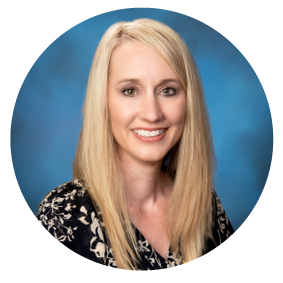
About Tiffany Rexrode
Tiffany graduated from Shepherd College in 2000 with a bachelor’s in social work. In 2004, she completed her master’s in social work from the University of Maryland. She has worked in public child welfare since 2000 within two state systems, West Virginia and Maryland. She has served in many roles within public child welfare, currently as the director of the Washington County Department of Social Services (WCDSS). She also teaches as an adjunct instructor for Shepherd University and Salisbury University. She first learned about COA Accreditation during her own agency’s accreditation cycle.
Q&A
What three traits define you?
I am driven, innovative, and organized.
What are your strongest beliefs about the value of COA Accreditation?
Because the standards are always adapting, COA Accreditation helps agencies to stay relevant with best practices.
What advice would you give someone interested in being a COA Accreditation volunteer?
This is a great opportunity to learn field driven best practices, visit new and interesting places, and meet wonderful colleagues – some of which become lifelong friends.
Share a memorable place, person, or experience from a site visit.
I have several treasured memories from site visits. I love to visit new places around the country. I loved South Dakota, Oregon, the Gateway Arch, and spending time in Nashville. There is always opportunity to have a nice time with team members too: random trivia nights, musical BINGO, the Grand Ole Opry, an awareness walk “A Mile in her Shoes,” escape rooms, or exploring local restaurants. Some of my best travel memories have been made on COA reviews.
What excites, surprises, and/or challenges you the most about the work you do as a COA Accreditation volunteer?
In over 40 reviews, I have always left with a new idea, a new consideration, a new philosophy, or a new opportunity that has influenced my practice. I have been able to implement several ideas in my own agency.
Learn more about how to become a peer review volunteer and apply online.
Heartland Family Service recently became the first organization in the country to be reviewed against SAMHSA’s updated criteria for Certified Community Behavioral Health Clinics through COA Accreditation, a service of Social Current.
Funded through SAMHSA, CCBHCs are designed to ensure access to coordinated and comprehensive behavioral health care. CCBHCs are required to serve anyone who requests care for mental health or substance use, regardless of their ability to pay, place of residence, or age—including developmentally appropriate care for children and youth.
With over 500 CCBHCs operating across the country, SAMHSA’s recent criteria encourages states to require accreditation by an independent accrediting body as part of its state certification requirements. COA Accreditation standards cover SAMHSA’s six key program areas and align with the CCBHC certification criteria.
COA Accreditation reviewed Heartland Family Service’s ability to meet the CCBHC certification criteria through site visits, discussions with service providers and care recipients, and data review. As the first organization to undergo COA Accreditation’s CCBHC review utilizing SAMHSA’s criteria, Heartland Family Service has helped to strengthen the process to assist more organizations in their pursuit of this review.
“CCBHCs provide timely access to mental health and substance use care and create important links for service recipients. We are proud to recognize Heartland Family Service as a CCBHC against SAMHSA’s criteria,” said Jody Levison-Johnson, president and CEO of Social Current.
COA Accreditation standards center person and family-centered treatment and promote culturally and linguistically appropriate practice and inclusive and accessible care. The standards for performance and quality improvement (PQI) provide a roadmap for developing a robust, sustainable, organization-wide PQI system that will increase organizational capacity to meet data tracking and reporting requirements.
Learn more about COA Accreditation for CCBHCs.
Webinar on COA Accreditation for CCBHCs
We will be hosting a webinar June 12 from 1-2 p.m. ET that will give an overview of COA Accreditation as it relates to Certified Community Behavioral Health Clinics (CCBHCs). Participants will hear from staff at Social Current, as well as BestSelf Behavioral Health, a COA-accredited organization operating a CCBHC program. Register now to join us and learn about the process and next steps.
